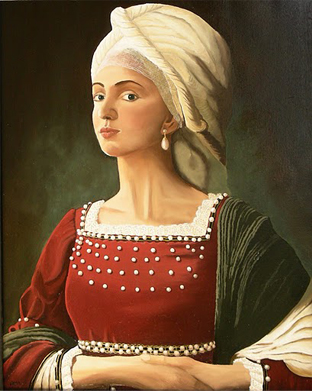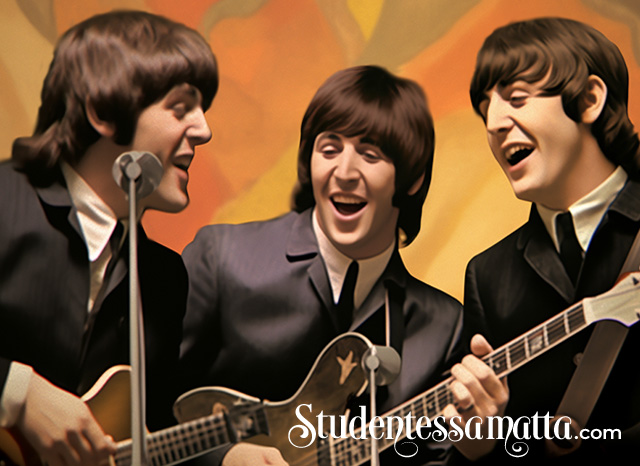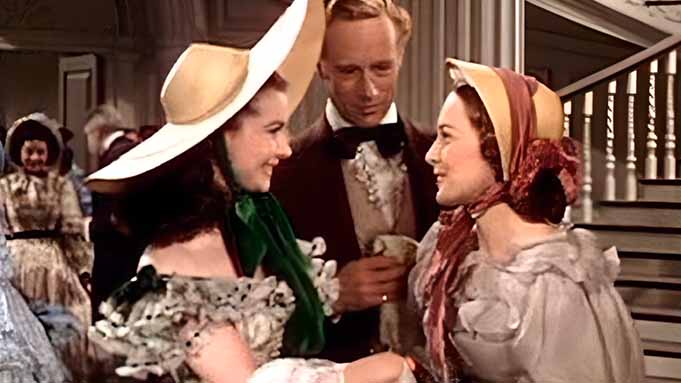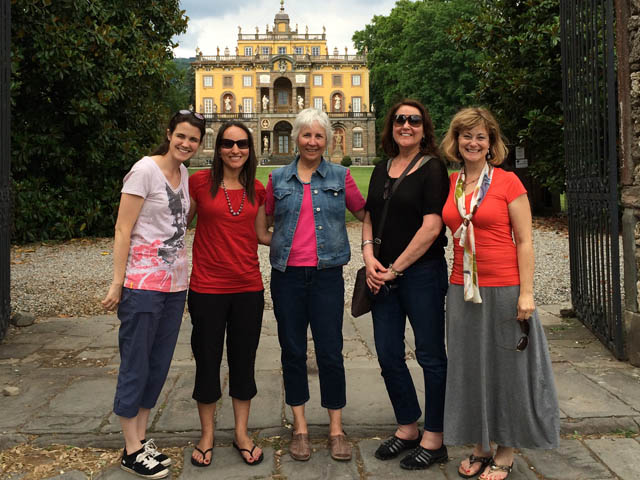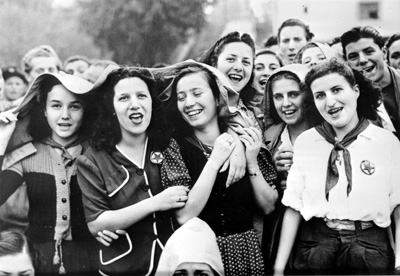
Bella Ciao! Le Donne Partigiane Che Hanno Cambiato La Storia
Bella Ciao! The Women Partisans Who Changed History
Il documentario “bandite” regia Alessia Proietti
Le partigiane in prima linea
Women Partisans on the Front Line
L’altro giorno, mentre ascoltavo la radio Emiliano-Romagnola, ho sentito la canzone “Bella ciao” all’inizio di un’intervista con due registe italiane, Alessia Proietti e Giuditta Pellegrini. Parlavano del loro documentario, Le Bandite, che racconta la storia di sei partigiane durante la Seconda Guerra Mondiale.
The other day, while listening to the Emiliano-Romagnola radio station, I heard the song “Bella ciao” at the start of an interview with two Italian directors, Alessia Proietti and Giuditta Pellegrini. They were discussing their documentary, Le Bandite, which tells the story of six women partisans during World War II.
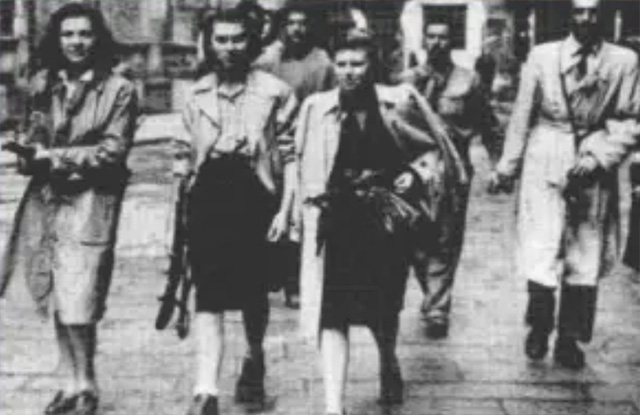
Voci di libertà che completano il canto della storia
Voices of freedom that complete the song of history
Il documentario Le Bandite riporta alla luce queste storie, dando un nome e un volto a coloro che per troppo tempo erano state ignorate dalla storiografia ufficiale della Resistenza. Il titolo gioca sul doppio significato di “fuorilegge” e di donne che rifiutarono di restare nei ruoli prescritti dalla società. Così come “Bella Ciao” porta con sé il peso emotivo del sacrificio e della speranza, Le Bandite custodisce la memoria viva delle donne partigiane—donne comuni che hanno compiuto gesti straordinari. Insieme, ricordano che la lotta per la libertà è sempre stata un coro di voci diverse, e che senza la strofa delle donne, il canto della storia resta incompleto
The documentary Le Bandite brings to light these women’s stories, giving names and faces to those long overlooked in mainstream histories of the Resistance. The title plays on the double meaning of “outlaws” and women who refused to stay in the roles society prescribed. Just as “Bella Ciao” carries the emotional weight of sacrifice and hope, Le Bandite preserves the living memory of le donne partigiane—ordinary women who did extraordinary things. Together, they remind us that the fight for liberty has always been a chorus of many voices, and without the women’s verse, the song of history is incomplete.
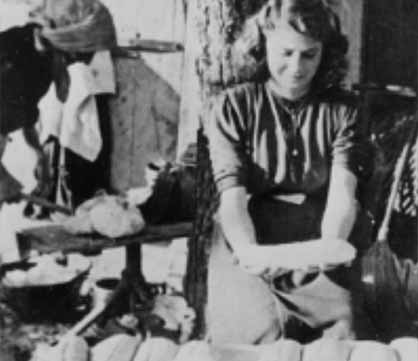
Non solo madri e spose: il ruolo delle partigiane
Not Just Mothers and Wives: The Role of Women Partisans
Secondo le registe, questo momento storico è stato cruciale non solo per la liberazione dal nazifascismo, ma anche per il cambiamento sociale. Le donne iniziarono a uscire dai ruoli tradizionali di madri, casalinghe e spose, per diventare bandite, clandestine e partigiane. Attraverso le interviste a queste donne ribelli, il documentario racconta la loro lotta per l’emancipazione femminile.
According to the directors, this historical moment was pivotal not only for liberation from Nazism and Fascism but also for social change. Women began to step out of their traditional roles as mothers, housewives, and wives to become rebels, clandestine fighters, and partisans. Through interviews with these rebellious women, the documentary narrates their fight for women’s emancipation.
Armi in mano e cuori coraggiosi
Weapons in Hand and Courageous Hearts
“Le donne non furono solo assistenti, cuoche o infermiere,” dichiarano le registe. “Molte di loro furono guerrigliere, pronte a combattere per la liberazione. L’obiettivo del nostro lavoro è recuperare una parte della memoria storica spesso dimenticata e contestualizzarla per il presente, affinché sia d’ispirazione per il futuro politico e sociale.”
“Women were not just assistants, cooks, or nurses,” the directors declare. “Many of them were guerrilla fighters, ready to take up arms for liberation. The goal of our work is to recover a part of historical memory often forgotten and contextualize it for the present, so it can inspire future political and social renewal.”
Relazioni che hanno cambiato il cameratismo
Transforming Brotherhood into Respect
Non solo le donne cambiarono, ma anche i giovani uomini che combattevano al loro fianco. Vivere insieme nei gruppi partigiani creò nuove relazioni basate sul rispetto, l’amicizia e la tenerezza. Per molte donne, scegliere di unirsi ai partigiani significava avere un carattere deciso e, spesso, rompere con le proprie famiglie. Per approfondire l’argomento, vi consiglio il libro “La resistenza taciuta” di Anna Maria Bruzzone e Rachele Farina.
Not only did women change, but so did the young men fighting alongside them. Living together in partisan groups forged new relationships based on respect, friendship, and tenderness. For many women, choosing to join the partisans required extraordinary determination and often meant breaking ties with their families. To learn more about this topic, I recommend the book “La resistenza taciuta” by Anna Maria Bruzzone e Rachele Farina.
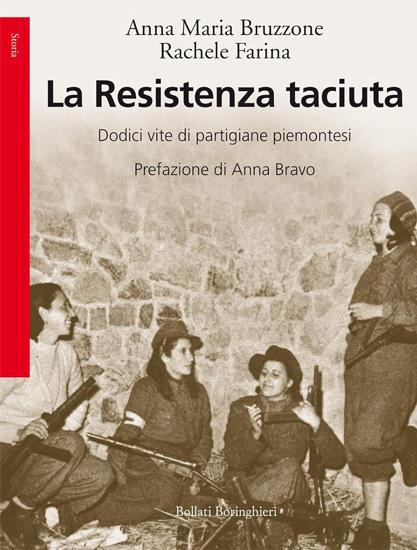
Milva canta — Bella Ciao (con parole)
“Bella Ciao” – Una Canzone di Resistenza e Memoria
Bella Ciao: A Song of resistance and remembrance
Sebbene oggi “Bella Ciao” sia conosciuta come l’inno della Resistenza italiana durante la Seconda Guerra Mondiale, le sue radici affondano nei canti delle mondine—i canti delle donne che lavoravano nelle risaie del Nord Italia tra la fine dell’Ottocento e l’inizio del Novecento. Queste donne usavano il canto per sopportare le dure condizioni di lavoro e per protestare contro lo sfruttamento. Durante l’occupazione nazista (1943–1945), i partigiani ripresero la melodia e le diedero nuove parole, raccontando la storia di un combattente che saluta la sua amata e parte per rischiare tutto in nome della libertà. Divenne così un grido corale di sfida, cantato nei raduni segreti e intorno ai falò.
While most know “Bella Ciao” as the anthem of the Italian Resistance during World War II, its roots stretch back to the canto delle mondine—songs sung by women working in the rice fields of Northern Italy in the late 19th and early 20th centuries. These women used music to endure grueling labor and to voice protest against exploitation. During the Nazi occupation (1943–1945), partisans adapted the song’s melody and gave it new lyrics, telling the story of a fighter bidding farewell to a beloved and going off to risk everything for freedom. It became a unifying cry of defiance, sung in secret gatherings and around campfires.
Bella Ciao
Una mattina mi son svegliato
O bella ciao, bella ciao, bella ciao ciao ciao
Una mattina mi son svegliato
Eo ho trovato l’invasor
O partigiano porta mi via
O bella ciao, bella ciao, bella ciao ciao ciao
O partigiano porta mi via
Che mi sento di morir
E se io muoio da partigiano
O bella ciao, bella ciao, bella ciao ciao ciao
E se io muoio da partigiano
Tu mi devi seppellir
Mi seppellire lassù in montagna
O bella ciao, bella ciao, bella ciao ciao ciao
Mi seppellire lassù in montagna
Sotto l’ombra di un bel fiore
E le genti che passeranno
O bella ciao, bella ciao, bella ciao ciao ciao
E le genti che passeranno
Mi diranno: “Che bel fior”
È questo il fiore del partigiano
O bella ciao, bella ciao, bella ciao ciao ciao
È questo il fiore del partigiano
Morto per la libertà
La Matta Parla delle Donne e i cambiamenti negli anni ’40
Unisciti al Matta Fall 2025 Book Club!
Join the Matta Fall Book Club!
Così come “Bella Ciao” racconta la lotta per la libertà, anche il prossimo libro del Matta Book Club ci porta nell’Italia degli anni ’30, quando le ombre del fascismo cominciavano a oscurare ogni voce libera.
Just as “Bella Ciao” tells the story of the fight for freedom, the next Matta Book Club read takes us to 1930s Italy, when the shadows of fascism began to silence every free voice.
Unisciti al Matta Fall 2025 Book Club! Quest’autunno leggeremo Il Senso del Dolore di Maurizio de Giovanni, un giallo avvincente ambientato nell’Italia degli anni ’30, sullo sfondo dell’ascesa del fascismo e della perdita delle libertà personali. Una storia che intreccia mistero e storia… imperdibile!
Join the Matta Fall 2025 Book Club! This fall we’re reading Il Senso del Dolore by Maurizio de Giovanni, a gripping mystery set in 1930s Italy against the backdrop of the rise of fascism and the loss of personal freedoms. A story where mystery meets history… not to be missed!
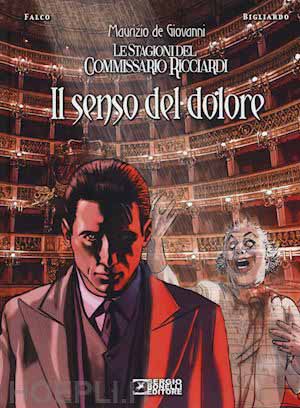
🇮🇹 Un consiglio dalla Matta 🇮🇹
Matta Italian Language Tip!
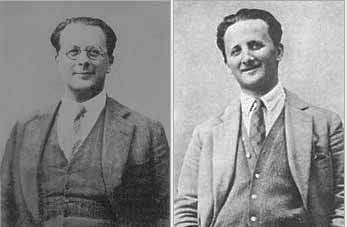
Learn history and Italian through song!
Learn history through song! Listen to “Bella Ciao” while reading the lyrics in Italian. Notice how the rhythm and repetition help you remember vocabulary and verb forms like alzarmi, trovai, and seppellire. Then, watch Le Bandite to connect the words to real stories of the donne partigiane.
Note, too, that at the beginning of the documentary one of the women Bandite called herself “Rossella”—not for Scarlett O’Hara, but for the fratelli Rosselli, two important Italian politicians, journalists, and anti-fascist activists. Combining music, film, and historical references will deepen both your language skills and your understanding of Italy’s past.
Read the novel inspired by the Italian Partigiane Resistance — and the song Bella Ciao!
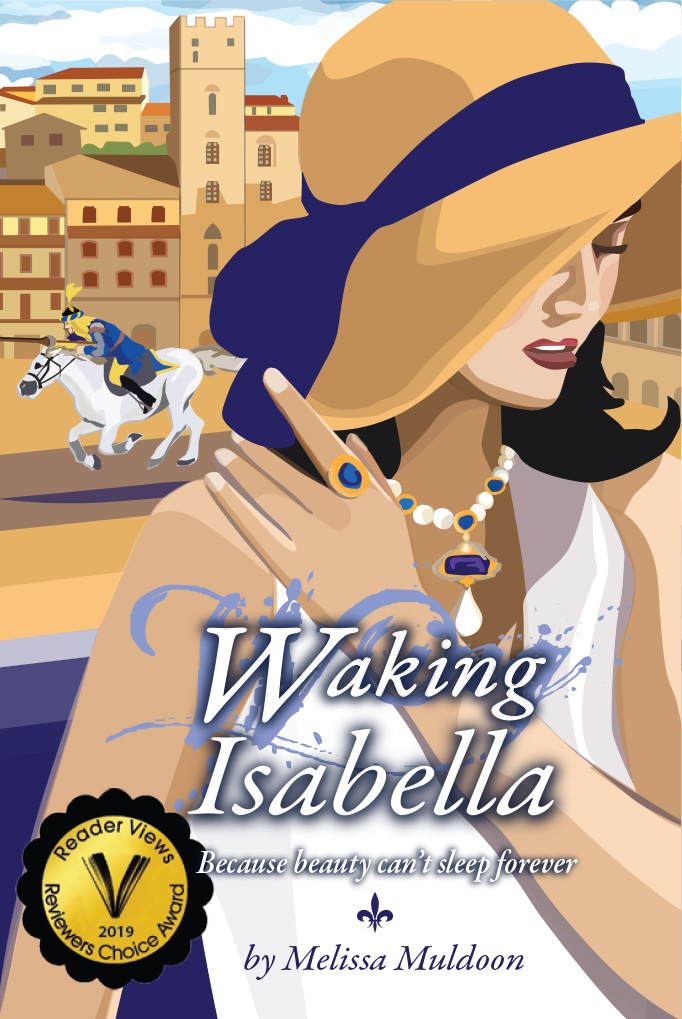
Waking Isabella
Waking Isabella is a story about uncovering hidden beauty that, over time, has been lost, erased, or suppressed. It also weaves together several love stories as well as a few mysteries. Nora, an assistant researcher, is a catalyst for resolving the puzzle of a painting that has been missing for decades. Set in Arezzo, a small Tuscan town, the plot unfolds against the backdrop of the city’s antique trade and the fanfare and pageantry of its medieval jousting festival. While filming a documentary about Isabella de’ Medici—the Renaissance princess who was murdered by her husband—Nora begins to connect with the lives of two remarkable women from the past. Unraveling the stories of Isabella, the daughter of a fifteenth-century Tuscan duke, and Margherita, a young girl trying to survive the war in Nazi-occupied Italy, Nora begins to question the choices that have shaped her own life up to this point. As she does, hidden beauty is awakened deep inside of her, and she discovers the keys to her creativity and happiness. It is a story of love and deceit, forgeries and masterpieces—all held together by the allure and intrigue of a beautiful Tuscan ghost.
